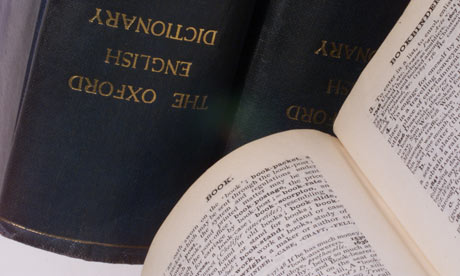
Whenever we do a theme-based poster poems challenge, I'm painfully aware that I'm indulging in a convenient fiction. Why? Because poems are not really made from subject-matter; it is not the seriousness or high moral worth of its theme that makes a piece of writing into a poem. It's the quality of the language that does the trick. I suspect that most poems get written not because the writer wants to say something so much as they want to take pleasure in the saying of it.
Sometimes, this pleasure can be an exuberant one; think of the sheer boisterous fun in the telling of Robert Graves's Welsh Incident, a poem which, I feel certain, was written for the pure mischief of that final "I was coming to that." When pushed to its limit, this kind of free-association language play enters the world of the surreal and gives us poems like David Gascoyne's The Cage or Hugh Sykes Davies's Poem ("In the stump of the old tree…").
In these poems, the art is in the apparent abandonment of conventional syntax and sense so as to open up the possibilities of the language. Other poets have chosen to take their language-play in a different direction, writing poems that appear conventional enough but do not lend themselves to any kind of prose paraphrasing. One example of this is Ezra Pound's The Return, which was once described by Yeats as being like a translation from an unknown Greek original. Christina Rossetti may be an unlikely bedfellow for Pound, but her What Is Pink? seems to me to have been written out of a similar instinct to make pleasing things with words as The Return was.
Of course, if you start talking about language poetry, the danger is that people will think you mean L=A=N=G=U=A=G=E poetry, not that there is anything wrong with that. In fact, a poem like Charles Bernstein's Gertrude and Ludwig's Bogus Adventure displays a delight in words that gives the lie to L=A=N=G=U=A=G=E's reputation for obscurity and difficulty. Tom Raworth is a British poet with something in common with the L=A=N=G=U=A=G=E writers, and his Tracking (notes) is a joyful romp through the language of philosophy.
Some of the things Raworth gets up to put me in mind of two other schools of (lower-case) language writing, sound poetry and concrete poetry. One of the most familiar examples of the sound poem is The Loch Ness Monster's Song by Edwin Morgan. Morgan has also written visual or concrete poems, but did you know that shape poems are a form of poetry that can be traced back all the way to the ancient Greeks?
In fact, the whole idea of poetry as playing with language is a very old one. We can see it in medieval street vendor rhymes like Turkey Rhubarb, in Shakespeare's Where the Bee Sucks from The Tempest or, to think of a more recent songwriter, in John Lennon's analphabetic An Alphabet. It seems to be some kind of basic human instinct. So to get us started into a new year on a good footing, it is the poster poems challenge for this week. What I'm calling for are your language poems, which is to say your poems that celebrate the material itself and the pleasure to be had from playing with it. Have fun.

